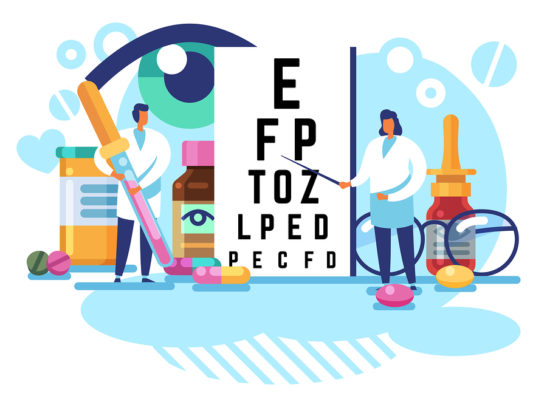A visit to your eye doctor can come and go in a blur. Discussing a loss of sight is a dreadful thought — however, avoiding it will not yield positive results either. Time with the ophthalmologist may be brief, so it is important to be prepared and engaged. Considering these steps, before every appointment, will help you be an informed patient.
- If you do not understand something the doctor says, or the terminology used, feel free to say, “I don’t understand, please explain.” Don’t be afraid to speak up.
- Summarize back what you heard, to clarify your understanding. “So you are telling me that age-related macular degeneration will make me blind?” The doctor responds, “No, I am saying that there will be some loss of your central vision, possibly to the level of legal blindness, but macular degeneration does not cause total blindness.”
- Request written materials, or even pictures or videos that you can take time to understand and absorb at home.
- Ask about best-case and worst-case scenarios, and what is the most-likely scenario for you?

Image of ophthalmology office activity.
- Write your questions and bring someone with you as an advocate, to read the questions on your behalf, and to take notes.
- If treatment is available, understand the risks involved. “Can injections in the eye cause glaucoma?”
- Ask if there is someone you can talk to, who is living with the condition, or has received the treatment.
- If treatment is not available, ask for alternative therapies or lifestyle changes that may help your longterm prognosis and quality of life. Don’t accept “nothing can be done” for an answer.
- If you are told nothing can be done to improve your vision, ask your ophthalmologist for information and resources to help you live successfully with vision loss, including referral to a low vision specialist and vision rehabilitation services.
It is crucial to be an Informed Patient when considering treatment or potential participation in a clinical trial. Clearly review, discuss and weigh the possible benefits against the risks. Consent forms are often many pages of medical and legal jargon — challenging for anyone to read, but especially hard with a visual impairment. Do not sign or agree to anything you have not read and understood completely.







